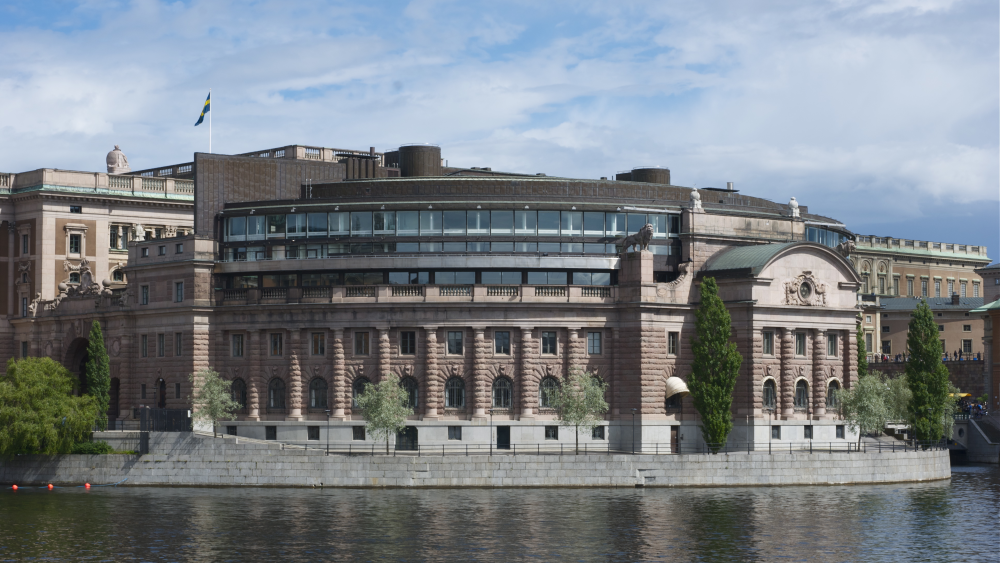Coming in from the cold
Due to their recent history as a neo-Nazi party, the Sweden Democrats (SD) were for a long time not perceived to be a legitimate actor by other political parties. In fact, only four years ago, during the previous national election, the idea of collaborating with the far right was considered unthinkable among all parties in parliament. Confronted with the SD’s increasing support, mainstream parties have frequently resorted to a moral framework in which they themselves were ‘the good guys’ while the SD was portrayed as ‘a devil in disguise’.
However, in the upcoming election, on Sunday, September 11, the dominant mainstream right party, the conservative Moderates, has included the far right in the oppositional bloc running against the incumbent prime minister from the Social Democrats. How did the Moderates end up here? And what are their prospects of succeeding?
Liberal legacy
In the 1990s, the Moderates – founded in 1904 as a traditional conservative party – were mainly policy-driven, focusing on economic liberalism. Additionally, the party had largely replaced nationalism with internationalism. As noted by the Swedish political scientists Ann-Marie Ekegren and Henrik Ekegren Oscarsson, ‘the moderate person’ was at the time a cosmopolitan citizen transcending the borders of the nation-states. Socio-cultural issues were not perceived to be particularly salient, but the party combined law-and-order politics with progressive policies related to gay rights, gender equality and cultural diversity. Within a stable yet increasingly fragmented multi-party system, the party was the leading party on the right – a position it won in the early 1980s. In 1991, the party formed a minority government, leading a center-right coalition and, for the first time in postwar Sweden, the prime minister, Carl Bildt, was from the Moderates. However, this government only lasted one term; the Social Democrats continued to dominate in both the electoral and governmental arena.
After a decade in opposition and an electoral setback in the early 2000s, the Moderates elected Fredrik Reinfeldt as party leader and adopted a more office- and vote-seeking strategy, moving towards economic pragmatism. More specifically, under the name ‘New Moderates’, they drifted towards a centrist position, putting less emphasis on large tax cuts, deregulation of labor legislation and the need for a strong night-watchman state. Electoral support increased significantly and, in 2010 the party even gained more than 30 percent of the votes, challenging the Social Democrats’ position as the largest party, for the first time since 1914. Reinfeldt was also able to form a credible pre-electoral center-right coalition, the Alliance, consisting of the Liberal Party, the Center party, the Christian Democrats and the Moderates. The coalition received 48.2 and 49.3 percent in 2006 and 2010 respectively, and Reinfeldt governed Sweden from 2006 to 2014. Not since they entered government for the first time in 1920 had the Social Democrats been out of office for so long.
End of exceptionalism
However, after the 2010 electoral breakthrough of the SD, and the growing salience of the immigration issue, the Moderates began losing electoral support. Moreover, despite a clear right-wing majority in parliament since 2014, the party was unable to enter office due to profound disagreements within the Alliance over whether to form a (minority) government that would have to rely on tacit support from the SD. Reinfeldt resigned as party leader after the electoral defeat in 2014 and the party elected Anna Kinberg Batra as the new party leader. Batra struggled to reconcile the different internal views on immigration, and how the party should relate to the SD. In 2017, she was forced to resign, and Ulf Kristersson became the new party leader.
Faced with a growing gap between vote-, policy- and office-seeking strategies, the Moderate leadership initially seemed to prioritize the latter two. Rather than moving towards the SD, abandoning liberal policies, and jeopardizing the stability of the Alliance, the party reinforced its cosmopolitan position. However, the combination of growing support for the SD in opinion polls, increasing internal pressure from socially conservative grassroots to change the party profile , and a less cosmopolitan public discourse in the wake of the so-called refugee crisis in 2015/16, created a strong incentive for the adoption of novel strategies.
First, as part of a vote-seeking strategy, the party replaced its moralizing cosmopolitan discourse with a more technocratic social conservatism. While the Moderates previously had confronted the SD using a moral framework, the main criticism now was the far right’s alleged inability to ‘fix’ challenges related to immigration and integration. In 2015, after presenting a stricter immigration policy, Batra suggested that ‘the SD is a party that makes Sweden suffer. They exploit societal problems instead of solving them’. Similarly, in 2018, the current party leader, Ulf Kristersson, claimed that the SD had been ‘good at identifying problems’, but that the far right ‘never presented concrete proposals that would really solve those problems’. In other words, the Moderates stopped challenging the nativist and authoritarian framing of immigrants used by the SD, and instead argued that the Moderates were simply more politically competent than the far right.
Second, as part of a new office-seeking strategy, the party no longer ruled out formal collaboration with the SD. This decision was also very much influenced by yet another electoral defeat in 2018 and the fact that two members of the Alliance had decided to support the incumbent Social Democratic prime minister after the 2018 elections to keep the SD away from power. Since then, the Liberal party has switched back to the right-wing bloc. But, with the liberal Center party still favoring the Social Democrats, there is no way to power for the Moderates without the far right.
Success or failure?
Hoping to finally re-enter government after eight years in opposition, the Moderates’ current electoral campaign has been a continuation of the socially conservative strategy. The main issues put forward have been law-and-order (particularly crime popularly associated with immigrants, such as gang violence and sexual assault), welfare-benefits dependency (mainly among immigrants) and the so-called energy crisis. The party has deliberately downplayed the legacy of the Alliance and explicitly disassociated itself from its former immigration policy. Now, the argument is that Sweden should receive fewer, not more, immigrants. Political collaboration with the SD is justified through arguments of pragmatism (collaboration is needed to get things done) and democratic norms (no major parties should be ignored). Furthermore, the Moderates also claim that the SD has become more ‘mature’ (for example that the far-right has behaved responsibly in parliament and during the pandemic, and now supports NATO-membership). Whenever SD-representatives violate liberal-democratic norms by making racist statements or suggesting collective punishment of the families of criminals, the Moderate leader Ulf Kristersson emphasizes that he embraces the SD on issues rather than ideology, and that the far left also has a (recent) history of illiberalism.
Whether the new strategy will prove successful is too early to say. The opinion polls suggest a very close race between the two blocs. One problem for the Moderates is that the socially conservative turn has alienated (some) female voters and those with higher education. Another problem is that the current prime minister enjoys a great deal of popularity, reinforced by a rally ‘round the flag-effect in the aftermath of Russia’s invasion of Ukraine, followed by the government’s application for NATO-membership. A third problem is that, even if the national-conservative bloc gains more seats than the center-left bloc, recent polls indicate that the Moderates have lost issue ownership on law-and-order to the SD and, more importantly, that the SD will become the largest party on the right. The mean of various polls a few days ago puts the SD at 19.9 percent and the Moderates at 17.9 percent.
While keeping in mind that the support for the far right has been overestimated before, such a result would have major psychological and political implications, as the Moderates would have to move out of their parliamentary offices and Swedish politics will be pushed further to the right. In other words, by embracing the far right and its policy agenda, the Moderates might have ended up strengthening rather than weakening its right-wing competitor. And, as a result, Sweden might witness a more comprehensive backlash against liberal and post-material values than first expected.
The blog post is based on the chapter “Sweden. The difficult adaptation of the Moderates to the silent counter-revolution” in Tim Bale and Cristóbal Rovira Kaltwasser eds. Riding the Populist Wave Europe's Mainstream Right in Crisis, published by Cambridge University Press in 2021.
.jpg)

.jpg?alt=listing)


